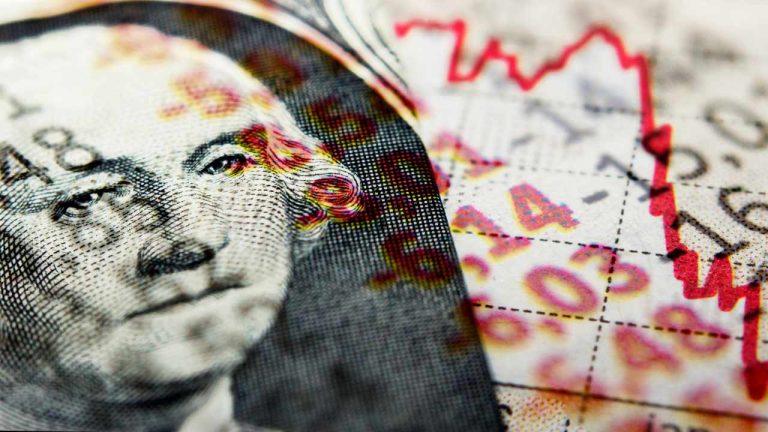
Economist Peter C. Earle says de-dollarization has begun, emphasizing that “It’s not just the conscription of the dollar in economic warfare, but increasingly error-fraught monetary policy regimes that are driving various interests away from the greenback.” He described: “By weaponizing dollar dominance and permitting expanding mandates to disorient U.S. monetary policy, the dollar’s fate as the lingua franca of world commerce over the long haul may already be sealed.”
Rising De-Dollarization Trend
Economist Peter C. Earle wrote an opinion piece, titled “De-dollarization Has Begun,” published by the American Institute of Economic Research last week.
He explained that “The profound economic disruption experienced by Iran, and more recently Russia, after being evicted from dollar-based trading systems like SWIFT … have led many nations to consider imminent contingency plans,” elaborating:
It’s not just the conscription of the dollar in economic warfare, but increasingly error-fraught monetary policy regimes that are driving various interests away from the greenback.
The monetary policy response to the 2008 crisis and the Covid outbreak caused unpredictable fluctuations in the dollar’s value, the economist detailed. The pandemic triggered a massive expansionary response in 2020, followed by an initial disregard for the inflation outbreak that subsequently hit four-decade highs “before an aggressive contractionary shift in policy that destabilized precarious financial institutions was implemented,” he noted.
Earle referenced efforts by several countries in attempting to reduce their reliance on the U.S. dollar, including the agreement between China and Brazil to settle trades in local currencies. In addition, the BRICS nations (Brazil, Russia, India, China, and South Africa) are reportedly working to create a new currency.
According to the economist, cryptocurrencies, central bank digital currencies (CBDCs), and baskets of commodities representative of a given nation are among the U.S. dollar alternatives being discussed. However, he cautioned that “Moving away from the dollar brings substantial barriers to exit as well as network effects to overcome, owing to historical, technological, financial, and habitual obstacles.”
While stating that “The dollar, in some shape or form, will likely be around for a long time. Perhaps very long,” Earle warned:
By weaponizing dollar dominance and permitting expanding mandates to disorient U.S. monetary policy, the dollar’s fate as the lingua franca of world commerce over the long haul may already be sealed.
“So long as the political will to moor US fiscal and monetary policies to those consistent with the constitution of sound money remain an inconversable matter, de-dollarization will proceed. And slower or more quickly, the dollar will lose ground abroad,” he concluded.
A number of economists have made predictions about the future of the U.S. dollar. Nouriel Roubini, aka Dr. Doom, anticipates that the global reserve currency system will shift from being unipolar to bipolar. Investment manager Larry Lepard said the USD could lose most of its value in five years. Meanwhile, gold bug Peter Schiff recently advised people to get rid of their dollars now and Rich Dad Poor Dad author Robert Kiyosaki reiterated his prediction that the U.S. dollar is dying.
Do you agree with Peter C. Earle about de-dollarization? Let us know in the comments section below.
Comments
Post a Comment